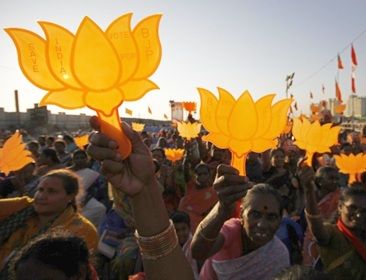 There is a lot of optimism across all markets and a large part of it is justified, says Arora of Helios Capital Management.
There is a lot of optimism across all markets and a large part of it is justified, says Arora of Helios Capital Management.
Mid-caps will also do well in the current situation where domestic institutional investors have seen big inflows, Samir Arora, founder and fund manager of Helios Capital Management, tells Puneet Wadhwa.
However, a market-cap agnostic fund could be better for new investments, he advises.
Will economic and stock market growth in developed regions outpace that in emerging economies and markets?
It is difficult to say but we are happy either way. There is a lot of optimism across all markets and a large part of it is justified.
What are the key triggers and risks the markets are looking at for direction? Will the outcome of state elections, especially of Uttar Pradesh, be a big trigger?
We do not believe the outcome of state elections can be a big development for the market. The Bharatiya Janata Party is expected to win in UP, the only election that matters in this round, if at all.
Even if they do not win, we don’t think investors will project this to derive conclusions about the 2019 national elections.
If they win, the market will have more reasons to go up.
Currently, Indian markets are going up for two or three reasons: All emerging markets, and indeed all equity markets worldwide, are going up; earnings for the recent quarter have been better than expected in mid-November or early December, when fear about the impact of demonetisation on the economy and corporate performance were at their peak; domestic mutual funds have got significant inflow, which helped counter FII (foreign institutional investor) selling in November-January.
The mid-cap segment has seen a healthy run-up since its recent low in December. What’s your advice for someone who is already invested in this space and someone who wants to invest now?
In general, we think investors should invest in all-cap funds. In many sectors (for example, private sector banking) the biggest companies are the best.
However, we believe mid-caps will also do well in the current situation where domestic institutional investors have big inflows, as they prefer mid-cap companies to try and outperform their peer group.
Mid-cap stocks could do well in a rising market but correct sharply in any weakness. Therefore, a market-cap agnostic fund might be better for new investments.
How are FIIs viewing India as an investment destination after demonetisation and the Union Budget? Do you expect the pace of FII flow to pick up?
It will pick up pace with time. There is a wrong feeling that the markets fall because FII investors sell. The reality, mostly, is they sell because markets were falling and not vice versa.
Everyone likes a strong market. You also saw how FIIs bought nearly $1.5 billion of HDFC Bank in just a few hours last week.
What has been your investment strategy over the past six months? Which sectors are you overweight and underweight on?
We have been overweight on Indian financials for three–four years.
We were nervous about the prospects of some of these companies during the demonetisation fear and reduced our weightage on a few at that time. In early January, we bought back the same stocks, as we realised these companies have not had the pain we feared.
Do you see a tilt in favour of consumption- and banking-related sectors, as the impact of note ban fades?
For us, clearly so. For, these are the only two sectors-themes we really like and are bullish on.
The information technology (IT) sector has been hit by the new H1-B visa-related issues. What is the road ahead? Is it a good contrarian play from a 12–24 month perspective?
We are significantly underweight on this sector. The problems are known and it is not easy to change strategy when there is so much invested in the current way of business.
With Tata Consultancy Services announcing a buyback, do you expect more IT companies to follow?
Buyback of shares is only a short-term financial trigger and does not make the underlying business more attractive.
Image: A BJP rally in Chennai. Photograph: Babu/Reuters.










